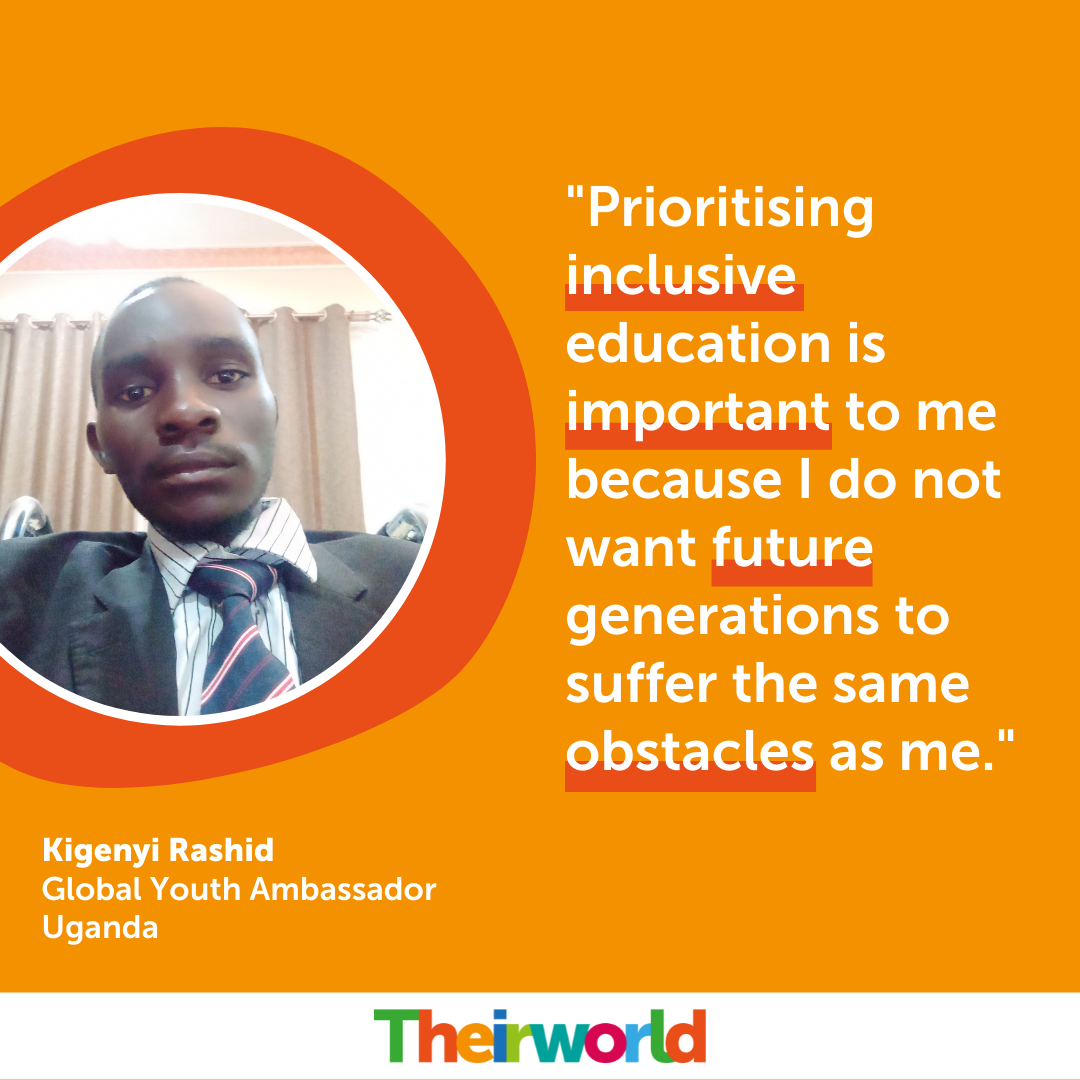
Kigenyi Rashid – Global Youth Ambassador December 2021

Global Youth Ambassadors
Theirworld's work would not be possible without our network of nearly 1000 Global Youth Ambassadors from around the world. Each month, we highlight the work of one or two of them and the amazing work they do to get every child into school.
GYA Kigenyi Rashid is using his own experiences of living with a disability to support and empower others, advocating for inclusive education and promoting equality for disabled persons in Uganda through his organisation Esperanza Initiative on Disability (EID).
Can you tell us more about the work EID does?
Esperanza Initiative on Disability focuses on the inclusion, rehabilitation and empowerment of persons with disabilities, their families and community. We achieve this by advocating and intervening for their rightful access to services, resources, participation in democratic processes and economic empowerment.
Our organisation visualises an inclusive society, in which persons with disabilities and their families can live healthy, participatory, self-reliant, and dignified lives. We do this by teaching them, focusing on entrepreneurial skills such as sewing, learning how to make menstruation pads, liquid soaps and crafts to enable them to earn a living.
My hope is that we can continue to make this change in education. I want to construct a specialist school for those with disabilities. The current schooling system does not push or challenge people with disabilities, often choosing to focus on students they perceive as more ‘able’. This attitude is something I want to root out and create a safe environment that is free of discrimination and ignorance and specifically educates and supports people with disabilities.
Why is prioritising inclusive education so important to you?
I want to become a changemaker for those who do not have hope. According to ministry research, there is an urgent need to ensure equitable access to education. Many of the children born with disabilities in Uganda are prevented from going to school for many reasons. From negative attitudes of people, especially parents, communities and schools to a lack of facilities – these contribute to the education gap, leading to most disabled people in Uganda being illiterate.
Prioritising inclusive education is important to me because I do not want future generations to suffer the same obstacles as me. That is why I aim to raise awareness of disability inclusion in Uganda and mobilise commitments for inclusive development.
What changes would you like to see in the classrooms that would make education more accessible to people with disabilities?
There are many changes that can be made to ensure a safe and accessible teaching environment for those with disabilities.
Thinking about the physical environment is a good place to start. For example, are there ramps available to wheelchair users or people with physical impairments? Are the toilets easily accessible? Considering moments like this can make a huge difference and ensure that those with disabilities can access any room, building or facility they need to.
By choosing to ignore these questions, you reduce the mobility of many. A physical barrier to classrooms and teaching environments means people cannot access their education.
More news

